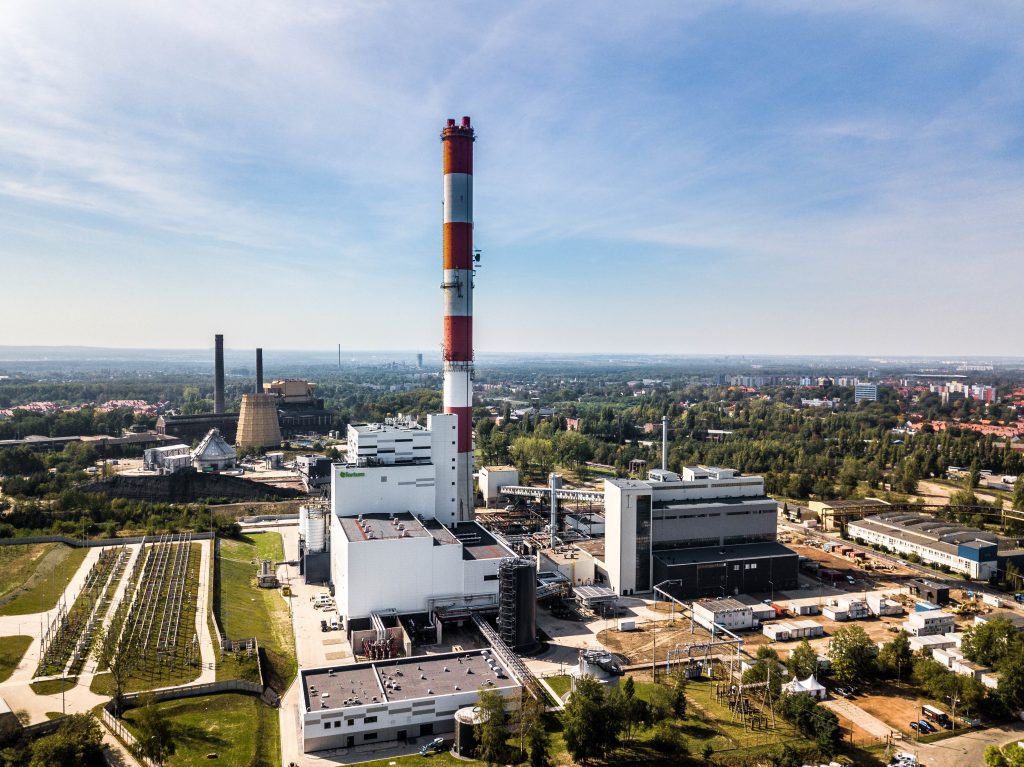The district heating industry is urging the Commission to unlock billions so that the costs don’t have to be picked up by the customers.
The Polish Association of Professional Heat and Power Plants (PTEZ) has calculated that the energy transformation of the heating sector in Poland could cost up to EUR 418 billion. The report was sent to the European Commission, and Poles are calling on the EC to approve more public assistance, so that these costs do not fall entirely on the end users.
„During a conversation with Commissioner Kadri Simson (Commissioner for the European Green Deal-ed.) I pointed out that meeting the requirements of the EU „Fit for 55″ package will require in the case of Poland, depending on the scenario, expenditures from PLN 276 billion to PLN 418 billion for decarbonization of the heating sector, which results from the analysis of PTEZ experts,” said Paweł Szczeszek, President of Tauron. „I pointed out that for the transformation to be effective, the prices of heat and electricity for Polish residents must be at an acceptable level, and thus the costs of the necessary investments cannot be borne by the final customers. It is therefore necessary to increase the regulation of the maximum level of public aid to at least 60%. We believe that the European Commission will see the problem of burdening EU citizens with very high transition costs and will come out with such an initiative to change the regulations in this area,” he said.
The PTEZ report titled „Assessment of the Impact of the EU Fit for 55 Decisions on the Transformation of District Heating in Poland” provides the calculation of these costs. Heating companies are calling for a larger scale of acceptable support with public assistance, so as not to pass most of the costs on to customers. „We believe that the European Commission will see the problem of burdening EU citizens with very high transformation costs and will come up with such an initiative to change regulations in this area,” Szczeszek concluded.
PTEZ / Wojciech Jakóbik
PGE wants to develop hydrogen technology in the railway sector
PGE Energetyka Kolejowa and Research Network Łukasiewicz – Poznań Institute of Technology signed a letter of intent on cooperation related to the development and dissemination of hydrogen technology in the railway sector in Poland.
The aim of the cooperation is to develop hydrogen rolling stock and railway hydrogen refuelling infrastructure. As part of the cooperation, the parties plan to modernize the WM-15A rail vehicle, including an introduction of hydrogen power system components. The hydrogen used to power such a modernized train will be provided by PGE Energetyka Kolejowa.
„Cooperation with the Łukasiewicz Research Network-Poznań Institute of Technology is aimed at decarbonisation of rail transport and the development of railways based on renewable energy sources,” said Sylwester Szczensnowicz, President of the Management Board of PGE Energetyka Kolejowa. „PGE Energetyka Kolejowa will want to use the experience gained in the project in the further development of railway projects of hydrogen stations in Poland,” he addded.
The development of the hydrogen economy in Poland, including the railway sector, fits into the Polish Hydrogen Strategy Until 2030, the assumptions contained in the National Plans For Energy and Climate (KPEiK), the Energy Policy of Poland Until 2040 (PEP2040), the Strategy for Responsible Development Until 2020 (with a perspective to 2030) and the National Framework for the Development of Alternative Fuels Infrastructure. The PGE Group actively monitors current research progress in the use of hydrogen technology in the electricity industry.
The PGE roup is the largest electricity company in Poland, a leader in the national energy transition and the largest producer of energy from renewable sources.
The Łukasiewicz Research Network is one of the largest research networks in Europe. It consists of 22 Institutes across Poland. It has extensive experience in cooperation with businesses, is able to respond to the most complex challenges from companies. Together with partners, it currently implements more than 1062 research projects worth PLN 7.4 billion.
Polska Grupa Energetyczna / Jacek Perzyński









